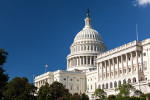Congress Introduces New Proposals to Scuttle DOL Fiduciary Rule

Republican and Democratic lawmakers introduced legislative proposals on Friday to halt the Department of Labor’s “fiduciary rule” that would redefine what the Employee Retirement Income Security Act considers a fiduciary and impose new mandates and regulatory requirements on financial advisors.
For months, spectators on both sides of the aisle have raised concerns that the DOL proposal could be unnecessarily costly and have a negative impact on low-income clients.
The Strengthening Access to Valuable Education and Retirement Support (SAVERS) Act, led by Rep. Peter Roskam (R-IL), and the Affordable Retirement Advice Protection (The ARAP) Act, led by Rep. Phil Roe (R-TN), would require congressional approval before the DOL fiduciary rule goes into effect. If Congress fails to approve the rule, a series of standards would go into effect to replace it. These include:
• Raising the bar for the entire financial services industry by requiring advisors to serve in their clients’ best interests;
• Rooting out bad actors by penalizing financial professionals who violate the trust of their clients;
• Requiring advisors to clearly communicate key information to ensure investors are well-informed to make investment choices; and
• Ensuring that individuals and families saving for retirement have access to advice and investment options to meet their individual needs and circumstances.
“We’re proud to strengthen and protect retirement planning tools for working families by raising investment advice standards throughout the industry,” said Reps. Peter Roskam (R-IL), Richard Neal (D-MA), Roe , and John Larson (D-CT) in a press release on Friday. “These bipartisan proposals require advisors to serve their clients’ best interests, strengthen protections for retirement savers, and maintain access to quality financial advice for small businesses and low- and middle-income Americans.”
It is unclear at this time if the current bipartisan legislation will pass the House or the Senate. The last piece of DOL fiduciary rule-busting legislation did not fare well. In October, Rep. Ann Wagner (R-Mo.) introduced H.R. 1090, the Retail Investor Protection Act of 2015, that sought to prohibit the Labor Department from moving forward on its proposed rule until 60 days after the Securities and Exchange Commission issued its own fiduciary rule. While the legislation passed the House, it was not taken up by the Senate, and the Obama administration threatened a veto if it had.
Political observers believe President Obama is pushing to have the Labor Department’s fiduciary rule implemented prior to his departure from office.